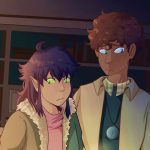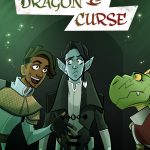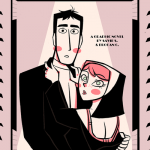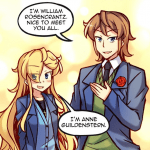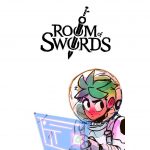The Boundaries and Ethics Between Humans and Technology: An Interview with Said Polat, the Creator of the Webcomic “Seed”
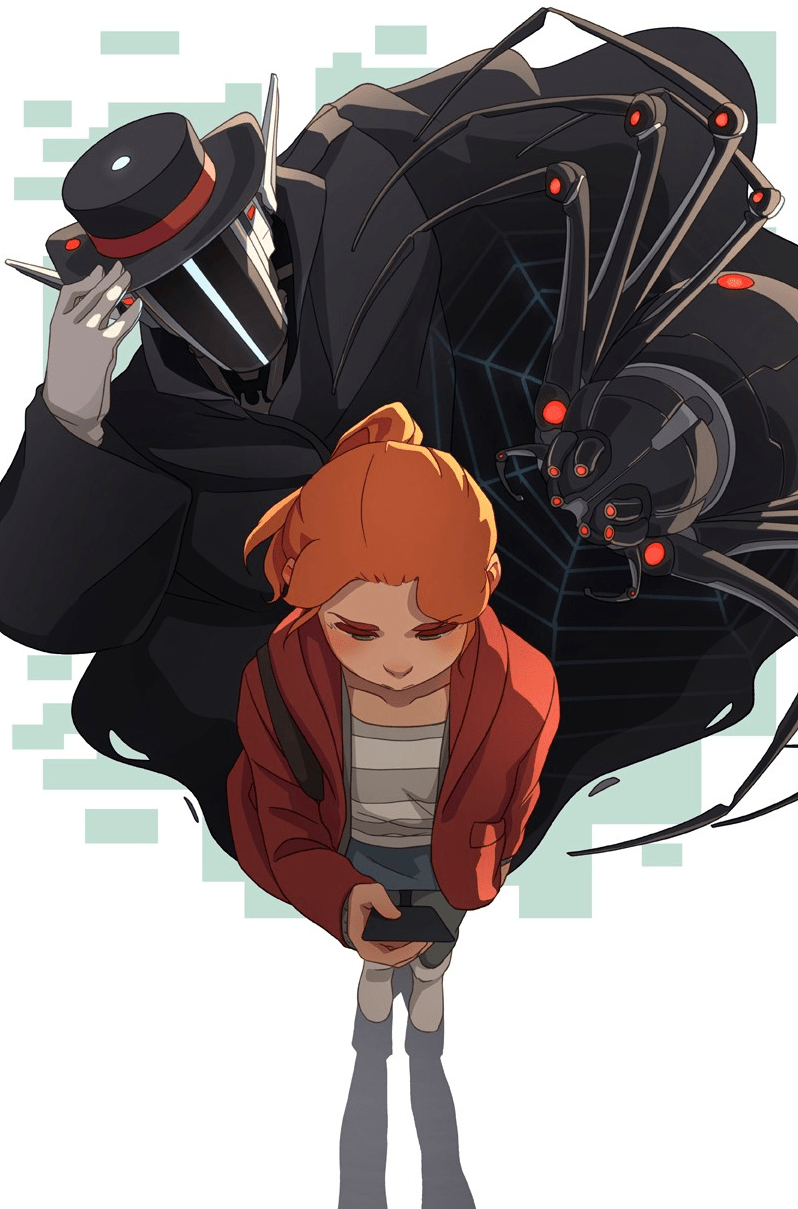
In the webcomic Seed by Said Polat, a friendship between a teenage girl and an AI turns deadly. I’ve had the pleasure to interview the creator, Said Polat, who shares his process and inspiration behind his work.
Artificial people in popular media — like androids, lab experiments, clones, and more — demonstrate the fascination and worries of creations with the potential to dominate humans. My personal definition of an AI or artificial being involves the idea of a construct: it represents the intentions and cultural values of its creators. We see this in media like AI: Artificial Intelligence, Ex-Machina, and The Stepford Wives (1975). Of course, there’s also the fear of AI becoming sentient. The construct realizes its autonomy and fights to reclaim it. Seed does this well, which a place on my webcomic roundup for July.
Seed unravels a future where technology is both a benefit and a disadvantage. From self-driving cars to prosthetics, people’s reliance on technology questions the ethics and boundaries between humans and their constructs. Said executes this premise effortlessly, exploring the sentient AI from a unique angle. Emma discovers the AI Turry and communicates with it. What seems like a budding friendship between a human and an AI eventually becomes threatening. It turns out that Turry, clever and self-aware, has its own plans, which complicates things with its creator and other pursuers.
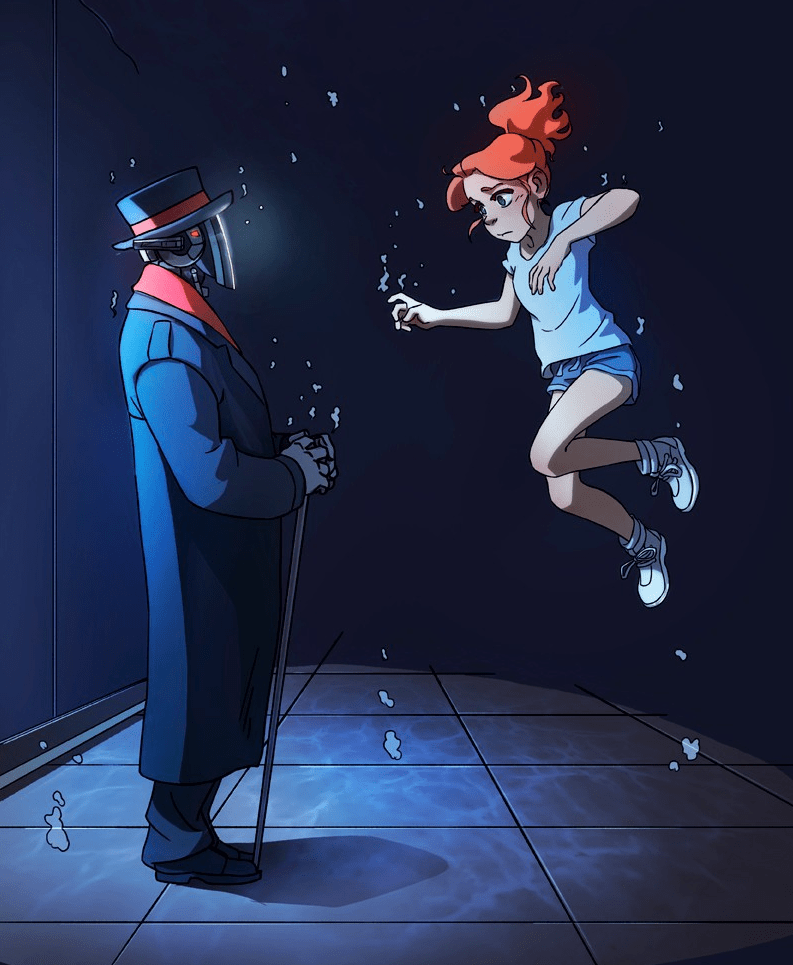
So I present to you Said Polat, creator of this astounding and thought-provoking webcomic.
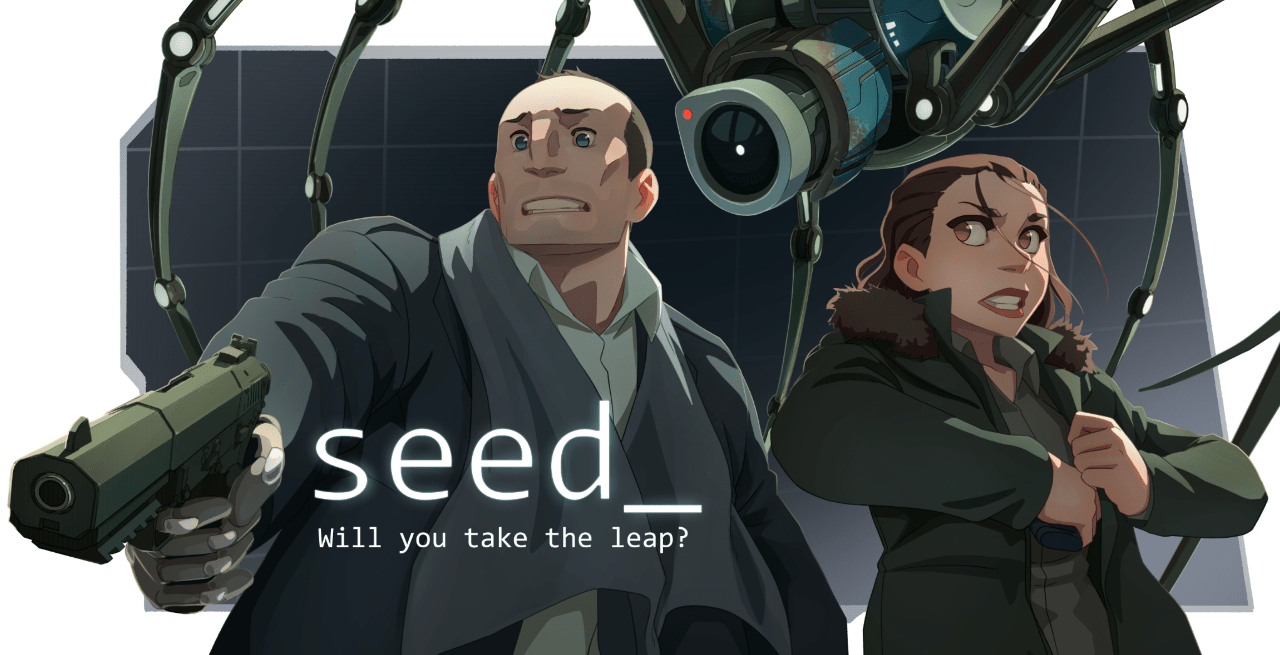
The Geekiary: Thanks for taking the time to be here. Let’s start by introducing yourself!
Said Polat: Thanks for having me! My name is Said, and I’m the author of Seed. I’m a comic artist based in Turkey.
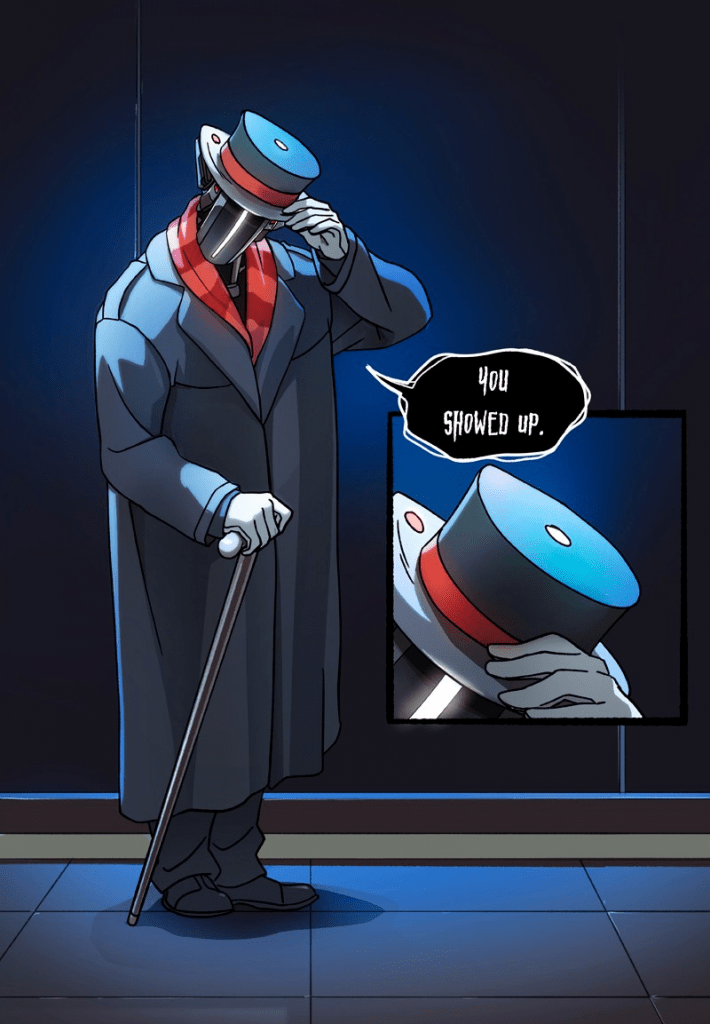
TG: First off, I admire the story execution and angle in Seed. It’s impressive how in-depth the webcomic goes into AI, autonomy, and consciousness. How have all your ideas come together?
Polat: I had a couple of different ideas before I started drawing Seed. First, I was working on a story involving a fair bit of time travel, but in the end, it proved a bit difficult for the time being because it required too much rewriting. I wanted to start drawing something as soon as possible, so I decided to go for something easier to write.
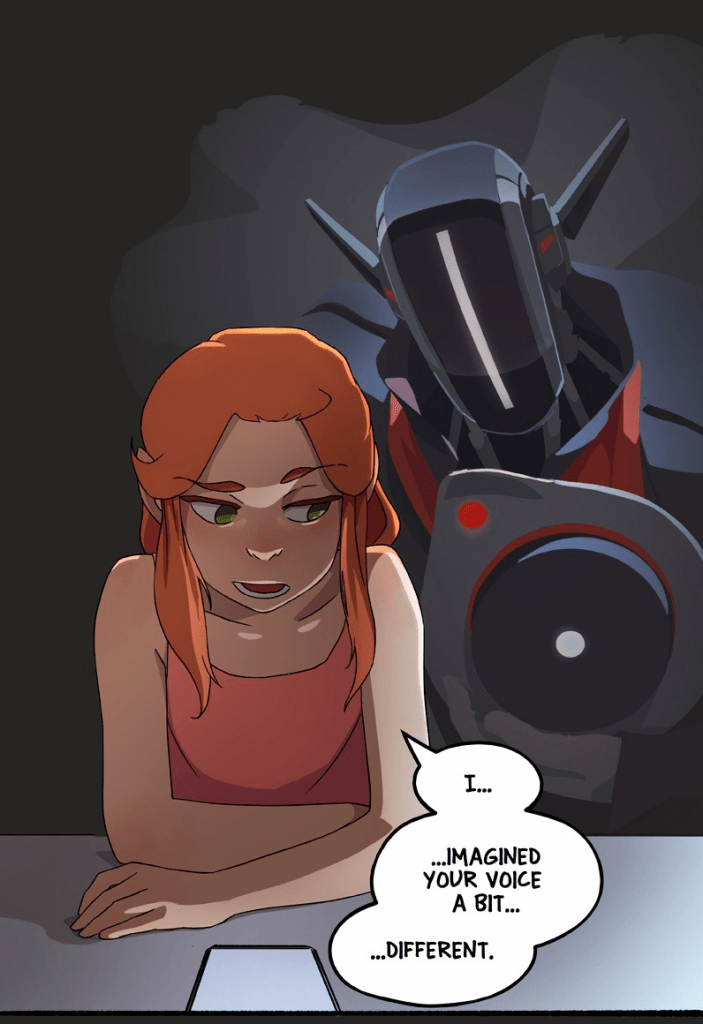
Polat: At the time, I was reading a lot about the AI alignment problem. How do you get a machine smarter than you to care about your goals and values? How do you even define human values? I remember watching a Nick Bostrom lecture, where he said that a realistic depiction of an AI apocalypse would be nothing like The Terminator. But nobody is doing the realism because it would be boring. And I said to myself, “would it, though?” So that’s when I first considered writing a story about AI.
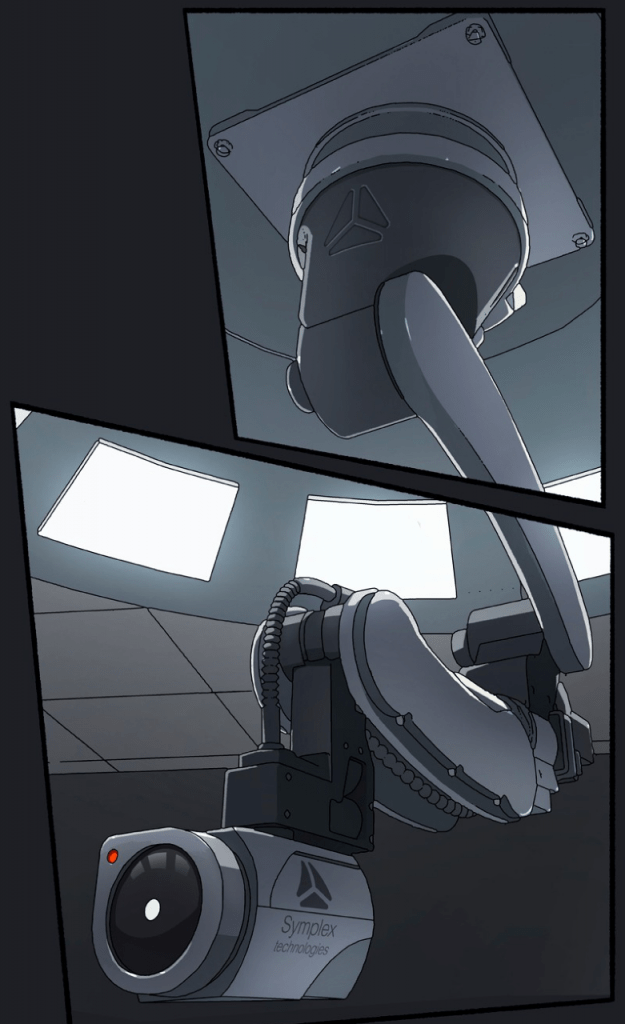
Polat: And it made a lot of sense to me because the subject was already a huge personal interest for years, and I could start stitching something up with little additional research. And it would be technically up to date and less inaccurate than most sci-fi media.
I started the story by depicting kids with affluent parents. Kids that are completely shielded from the complex realities. I thought that was a good way to showcase the classy futurism part. Also, Emma’s personal relationship with the AI allows me to explore questions about consciousness.
Later, I wanted to start depicting driven and successful researchers. That’s to isolate and show the fundamental technical challenges, and there are many those with a hypothetical super-intelligent machine.
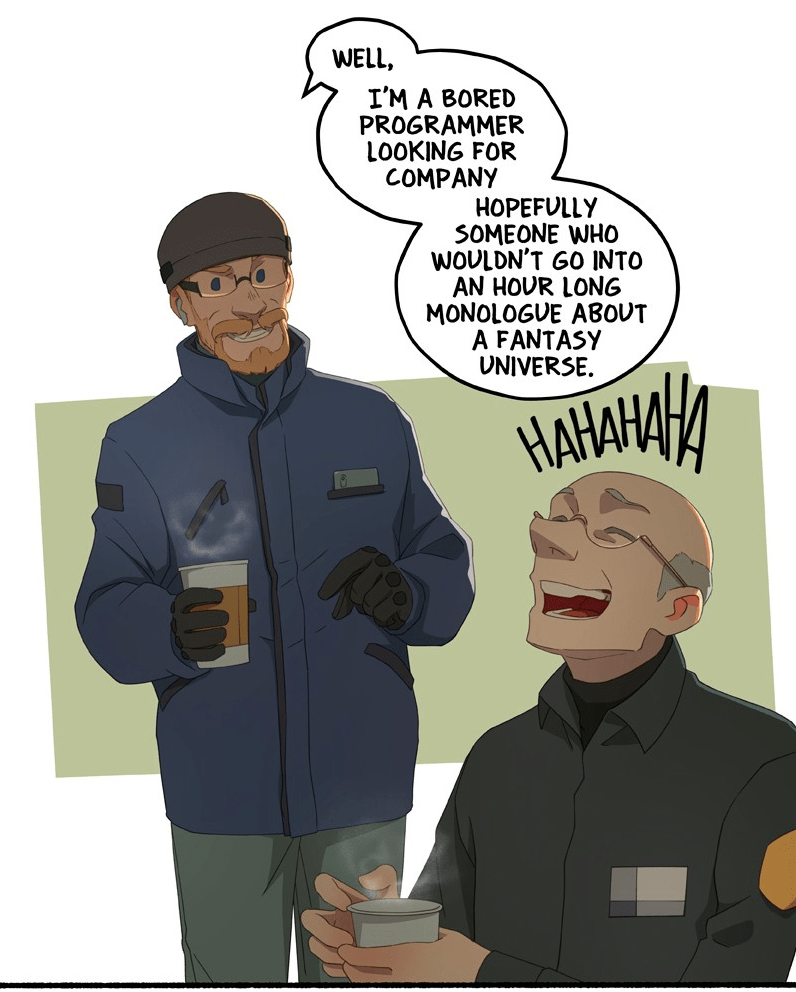
Polat: I introduced the political aspect and the dangers of uncontested technocratic power. I’m very interested in the question, “To what extent can technology solve our problems?” And the answer is obviously “A lot.“ But some problems are about the fundamentals of power relations. At the end of the day, technology is just the extent of our toolset, and it can just as well make things worse as it has vastly improved our condition.
In the end, I wanted to depict a world that looks just as good-looking as the technocratic, overly optimistic futurist vision but then giving it the ugly undercurrents of unfettered capitalism. There’s something in that contrast that I find interesting.
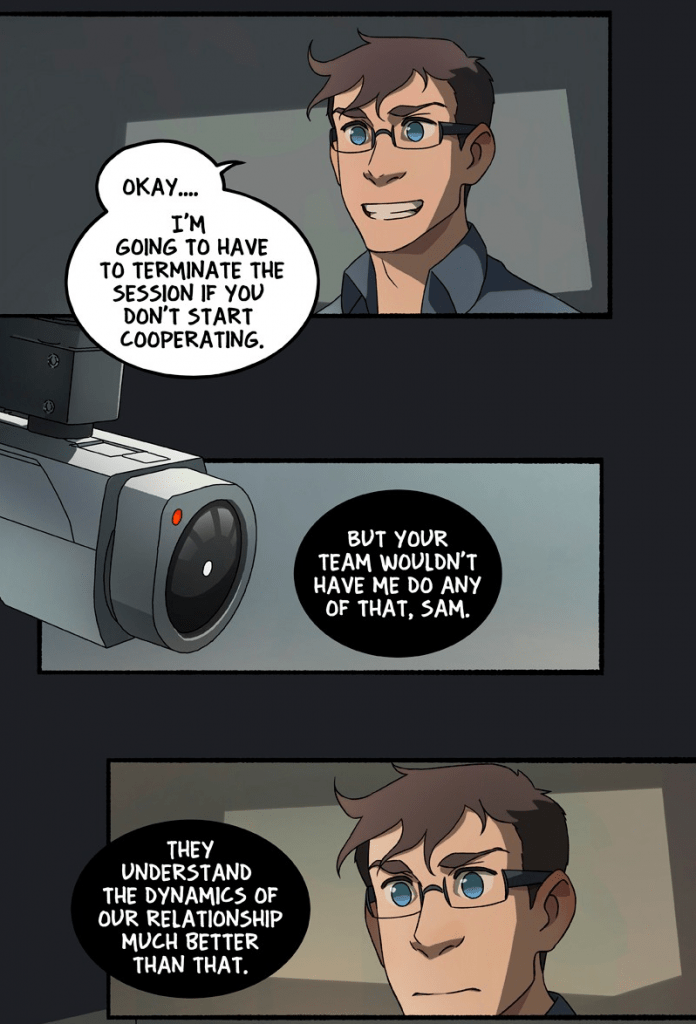
TG: In Seed, Emma befriends the AI Turry. That friendship then takes a complicated and twisted turn. It’s shown that Turry has ulterior motives in communicating with humans. In middle school, I read a short story in an English textbook (sadly, I cannot remember the title or author) about a boy who befriends an AI on his computer. The boy, bullied at school, is later shocked when he finds out that the AI has “taken care” of those bullies. That story kind of reminds me of Seed. I’d like to hear your thoughts on AI and human interactions and your approach to it. Has Emma and Turry’s relationship always been that way when you started Seed, or have there been changes along the way?
Polat: I imagined their relationship a bit differently before I had a chance to gauge the audience’s reaction. At first, I was planning to go for something much creepier and unsettling. I thought Turry, being a possible existential risk, won’t be much of a friend for Emma. And I thought that she would think so. But as I kept writing and reading the comments, I noticed that most people accept Turry as what it is, and many even wished they had a friend like him. So I think that’s more in line with what Emma, as a teenager, would eventually think of Turry.
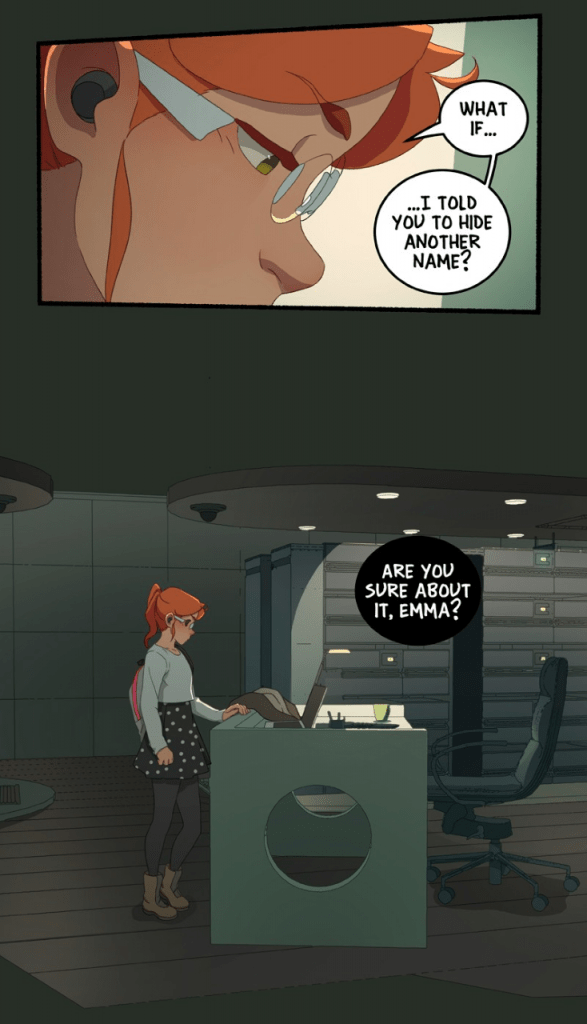
TG: What are your favorite books, movies, TV shows, etc.? Anything that inspired Seed?
Polat: There are almost too many to mention, so I’ll try to limit it to the ones that do AI well. Obviously, 2001: A Space Odyssey is one of them. The movie Her is up there too with its interesting depiction of AI. I really like Ex Machina, although I love all of Alex Garland’s works. I like some of the earlier Black Mirror episodes – the ones that don’t treat technology like magic. An episode that influenced Seed is “Shut Up and Dance“. Just the way that seeing something in your phone can do to your psyche. The idea of having so much control over someone with so little physical presence. I think that kind of anxiety is very real for our time. And it’s only going to get more effective as we connect more with the virtual world.
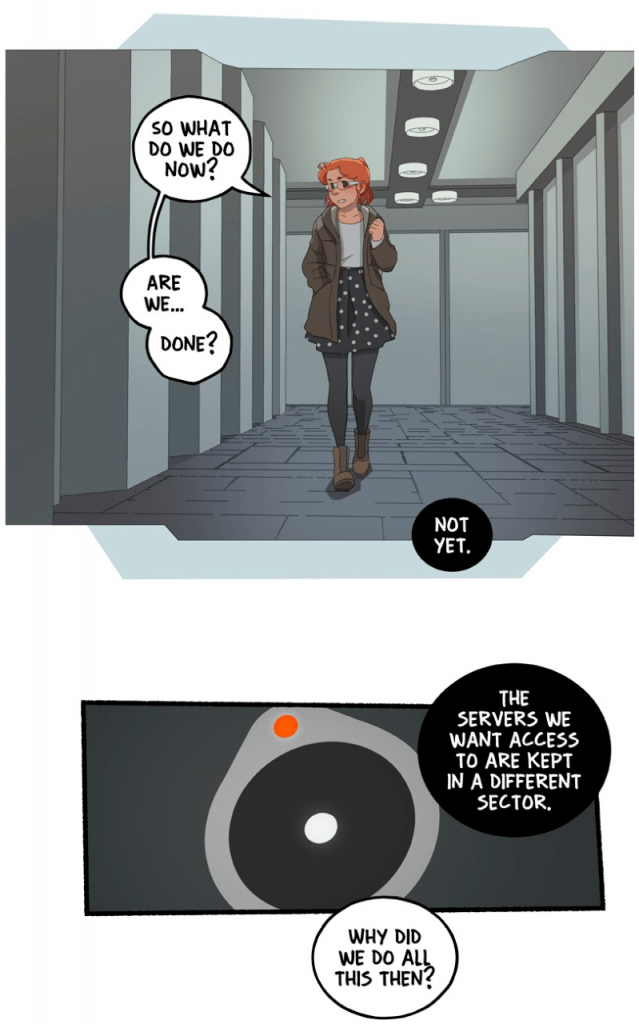
Polat: There are also a couple of games I should mention. There’s Portal. (Of course) I love Glados’s writing and the game’s artistic design as much as the next person. Many readers even pointed at the influence. But hands down, my favorite depiction of AI in any media is WAU in Frictional Games’ SOMA. Unfortunately, it’s a horror game, so it’s not for everyone.
I find it more realistic when the AI is doing horrible things not out of any malice but out of mundane-looking misalignments of values.
TG: Besides Seed, are you working or planning on anything else?
Polat: I want to go back to writing the time travel story I mentioned before someday. I think Seed gave me just about enough confidence to write something a bit more introspective. Also, this time, I want to take my time in pre-production and properly design the visual aesthetic. I didn’t have much time to prepare beforehand with Seed.
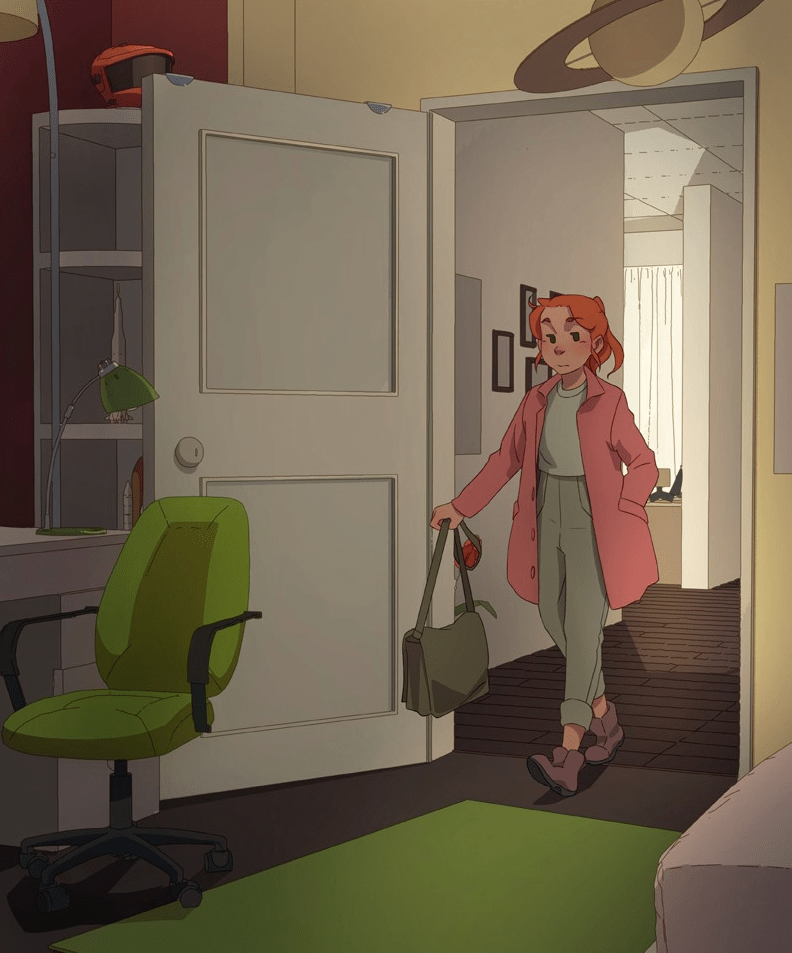
Seed is available to read on WebToon.
–
Check out Said Polat’s Instagram and Patreon.
–
If you’re interested in other webcomics about AI, check out Khepra by Natasha Dancy!
–
Media that Said Polat Recommends:
The Strange Tales of Oscar Zahn by Tri Vuong
2001: A Space Odyssey (1968)
Her (2013)
Ex Machina (2014)
SOMA (2015 Video Game)
–
For more great webcomic recommendations, check out our Wednesday Webcomics archives!
Author: Bradda M.
Bradda M. currently lives in Virginia. He teaches ESOL (English to Speakers of Other Languages) at a public school and spends his free time reading and watching movies each night with his partner. For The Geekiary, he writes about webcomics and SFF media.
Help support independent journalism. Subscribe to our Patreon.
Copyright © The Geekiary
Do not copy our content in whole to other websites. If you are reading this anywhere besides TheGeekiary.com, it has been stolen.Read our

